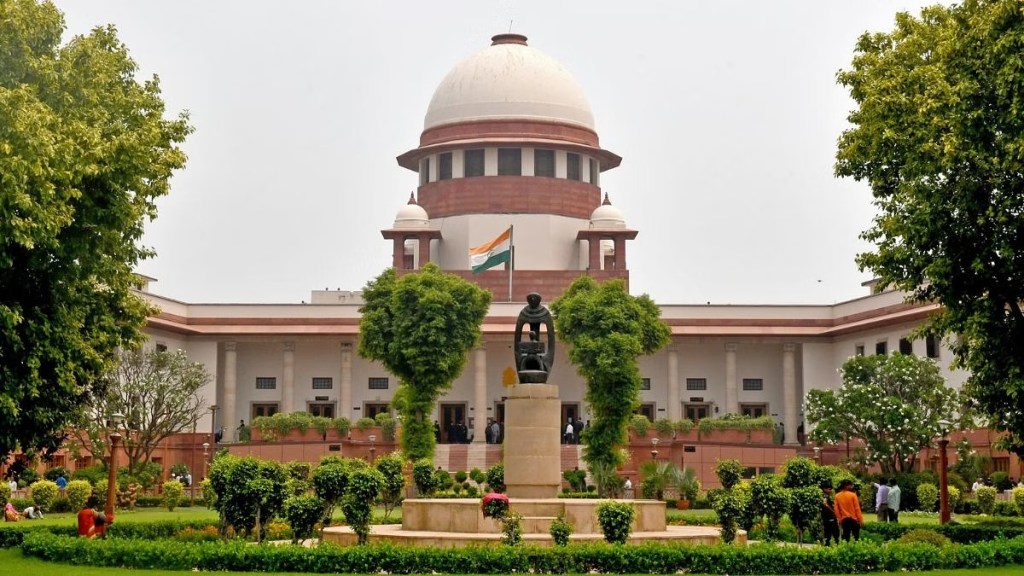In a landmark judgement that has delivered a big blow to the BJP government, the Supreme Court on Thursday struck down the electoral bonds scheme for political funding, saying that it is “unconstitutional” and violates the right to information.
The verdict, which comes months ahead of the Lok Sabha election, a five-judge Constitution bench headed by Chief Justice of India (CJI) DY Chandrachud directed the SBI to disclose details of each electoral bond encashed by political parties by March 6, and said that the Election Commission of India (ECI) should publish the information shared by SBI on its official website by March 13.
The bench, also comprising Justices Sanjiv Khanna, B R Gavai, J B Pardiwala and Manoj Misra, delivered two separate and unanimous verdicts on the pleas challenging the scheme.
Soon after the judgment, advocate Prashant Bhushan, who represented petitioner NGO Association for Democratic Reforms (ADR), said in a post on X, “Kudos to the SC for striking down anonymous Electoral Bonds & also the unlimited funding by corporations of Political parties. SC has also directed disclosure of Bonds encashed so far: Who gave to whom? This will have a far reaching impact on our electoral democracy and polity.”
Calling it a “historic judgment”, senior advocate Sanjay Hegde told Financial Express.com, “Essentially, the verdict says that huge anonymous money can not be part of politics.”
The implication (of the verdict), Hegde explains, is that “the cloak of anonymity through banking channels has ceased to exist. That would be non-traditional. The traditional methods of funding will, however, involve the movement of cash, which the ECI detects from time to time.”
He added, “Quid pro quos will be made known, and past transactions will now be put out on ECI’s website. Data there will be very valuable, if properly analysed.”
Meanwhile, former election commissioner SY Quraishi, in a post on X, said, “Electoral Bonds declared unconstitutional by the Supreme Court. Three cheers for the SC!”
“This will restore people’s faith in democracy. This is the greatest thing that could have happened. This is the most historic judgement that we have got from the Supreme Court in the last five-seven years. It is a great boon for democracy,” Quraishi told PTI Videos.
“We were all concerned for the last so many years. Everyone who loves democracy was protesting about it,” he added.
Congress leader Jaya Thakur, who had challenged the scheme in the apex court, said that the verdict will “protect the interest of the people”.
Advocate Varun Thakur, who represented her in the case, said that the verdict will be a major setback for the BJP government as the Supreme Court has directed to disclose all transactions between 2019-2024. According to a recent report, in financial year 2022-23, the BJP received nearly Rs 1,300 crore through electoral bonds in 2022-23, seven times more than what the Congress received.
“So this is a very big setback… the way donations were being taken off the record. Now accountability will be fixed: whether policies have been formed to favour those who have donated. The public have the right to know this… We can say that democracy has won today.”
Calling the electoral bonds scheme as the “brainchild” of late BJP leader and former finance minister Arun Jaitley, Congress leader and Rajya Sabha MP Kapil Sibal called the verdict a “ray of hope for the citizens of the country”.
“The electoral bond scheme had nothing to do with elections. It was really the bonding between the corporate sector and the BJP which received the largest number of donations, and the donations they received over the years amounted to about five to 6000 cores,” Sibal told news agency ANI.
The Supreme Court on Thursday said that information about corporate contributors through electoral bonds must be disclosed as the donations by companies are purely for quid pro quo purposes.
On January 2, 2018, the electoral bonds scheme, which was notified by the BJP government, was pitched as an alternative to cash donations made to political parties to bring “transparency” in political funding.
The apex court had reserved the matter on November 2, 2023.


